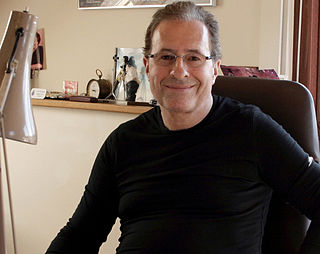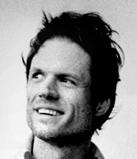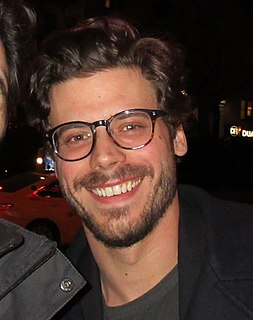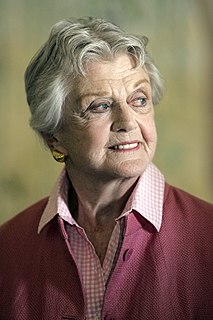A Quote by Colin Wilson
Whereas in the past optimism had been regarded as rather shallow - because 'oh well, it's just your temperament, you happen to be just a cheerful sort of person' - what I wanted to do was to establish that in fact it is the pessimists who are allowing all kinds of errors to creep into their work.
Related Quotes
There are really two kinds of optimism. There's the complacent, Pollyanna optimism that says "don't worry - everything will be just fine" and that allows one to just lay back and do nothing about the problems around you. Then there's what we call dynamic optimism. That's an optimism based on action.
There are really two kinds of optimism. There's the complacent, Pollyanna optimism that says, 'Don't worry - everything will be just fine,' and that allows one to just lay back and do nothing about the problems around you. Then there's what we call dynamic optimism. That's an optimism based on action.
I think a person who takes a job in order to live - that is to say, for the money - has turned himself into a slave. Work begins when you don't like what you're doing. There's a wise saying: make your hobby your source of income. Then there's no such thing as work, and there's no such thing as getting tired. That's been my own experience. I did just what I wanted to do. It takes a little courage at first, because who the hell wants you to do just what you want to do; they've all got lots of plans for you. But you can make it happen.
So it sort of dawned on me that you have to build into your work the fact that it's going to be shown in different kinds of places and different kinds of light. And the fact that the surroundings and where you're going to be shown is always changing, so that should really not affect the meaning of the work. It should be part of what the work is about.
Writing a novel was like I had some Play-Doh to work with and could just keep working with it - doing a million drafts and things changing radically and characters appearing and disappearing and solving mysteries: Why is this thing here? Should I just take that away? And then realizing, no, that is there, in fact, because that is the key to this. I love that sort of detective work, keeping the faith alive until all the questions have been sleuthed out.
I'm completely unlike a lot of other performers in the past who have been forgiven or come to terms with the real world because they tell everyone their performance is 'just a show.' And so, people say, 'Oh, it's OK then. We don't care. He's not really a bad person.' It's not just a show for me. It's my life.
Cover your glass in France or Germany --even worse, in England - and in the voice of someone who has personally affronted, your host will ask why you're not drinking. 'Oh, I just don't feel like it this morning.' 'Why not?' 'I guess I'm not in the mood?' 'Well, this'll put you in the mood. Here. Drink up.' 'No, really, I'm OK.' 'Just taste it.' 'Actually, I'm sort of...well, I sort of have a problem with it.' 'Then how about half a glass?
In American commercials in the past year or two, I don't know, the singers all sound like they're whining and the music's all melancholy. It's sort of like, I hear these commercials and it makes me feel sad, you know? Like - for instance, my barley tea is gone. Now, there's music out there that encourages you, when your barley tea has run out, to just sort of sit there and be like "My tea ran out. Oh, man." And just be slouching. So we wanted to make music that when your tea runs out, instead you're like, "I'm gonna go get some more tea!" You know? It just gives you the energy.
I never wanted to be famous or get any sort of recognition for my person or my personality; it has always been for my work. There's something that bothers me intrinsically about social media, but it's just expected of you now. It's almost part of your contract. But that's not what I'm selling. I don't want to sell anything.
My real problem was certainly decisions I made, and the optimism that I had in making them. Y'know, I mean, I lived within this kind of nimbus of optimism, that, no matter what I encountered, I would always overcome it. Well, optimism can be your worst enemy as well as your best friend, but the other side of this is, that, y'know, expenses grow. But our incomes have not.
I had no idea that such a thing could happen. It never occurred to me.My son told me. He called me and said, "Darling, I just wanted you to know that you have been chosen to receive an honorary Academy Award." I was in the back of this car, and I said, "Oh," and burst into tears, of course, because it was so unexpected and quite wonderful. I thought it's been worth hanging around all these years.
I really became aware of the fact that, oh yeah, whereas a lot of other shows are sort of cynical or jaded or just sort of coming from that sort of energy, our show is very, very about these love-based relationships. It really comes out, a lot of times, in a sweet way. And I think people find that refreshing about our show. That's one of the things I definitely picked up on.






































